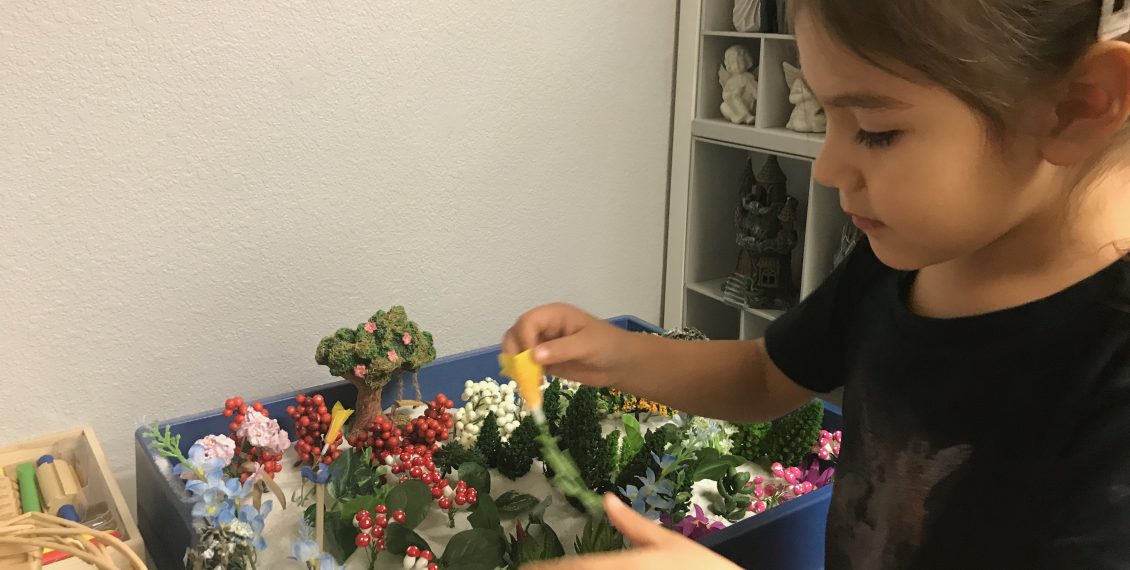- You are here:
- Home
- Blog
- Anxiety and Trauma
- What is Play Therapy?

As psychotherapists, our focus is in child development and play therapy. We use a playful and individualized approach to empower children to cooperate, self-regulate and effectively communicate their needs.
Play therapy is most often used with children ages 3-12 and usually occurs in weekly sessions. Some children’s behaviors may improve very quickly with play therapy (averaging 15-20 sessions), while others may have more serious or ongoing problems that may take longer to resolve. Play therapy works best when a parent, family member, or caretaker is supportive and actively involved in the treatment process.
Why Play Therapy?
Developmentally, even the brightest children have not developed the capacity to use the insight-based verbal reasoning– which is needed to be successful in one-on-one talk therapy. What works in the world of play therapy is that it play can be used as a language by the child, overcoming the challenge of more traditional language-based communication while still allowing the therapist to assess and respond to the underlying needs of the child-client. Also, because therapy sessions are child-centered, there is less resistance and often more rapid change than with talk therapy.
 Play therapy is different from regular “playdates” because in these specialized sessions, therapeutic space is created to allow the child-client to express, address, and resolve the challenges they have faced. Play provides a psychological distancing from a child’s issues and allows expression of thoughts and feelings– which is the process work of therapy. Through play, therapists can help children learn more adaptive behaviors when there are emotional or social skills deficits. Children learn to communicate with others, express feelings, modify behavior, develop problem-solving skills, and learn a variety of ways of relating to others. Even the most troubling problems can be confronted in play therapy and lasting resilience can be discovered, rehearsed, mastered, and adapted into lifelong strategies.
Play therapy is different from regular “playdates” because in these specialized sessions, therapeutic space is created to allow the child-client to express, address, and resolve the challenges they have faced. Play provides a psychological distancing from a child’s issues and allows expression of thoughts and feelings– which is the process work of therapy. Through play, therapists can help children learn more adaptive behaviors when there are emotional or social skills deficits. Children learn to communicate with others, express feelings, modify behavior, develop problem-solving skills, and learn a variety of ways of relating to others. Even the most troubling problems can be confronted in play therapy and lasting resilience can be discovered, rehearsed, mastered, and adapted into lifelong strategies.
Play therapy is effective with children experiencing life stressors, such as relocation, hospitalization, chronic illness, abuse, domestic violence, and natural disasters. Therapeutic play and can be used with children dealing with:
- anger management
- grief and loss
- divorce, family dissolution, and abandonment
- crises and trauma
- anxiety
- depression
- ADHD
- Autism or pervasive developmental disorder
- academic and social problems
- learning disabilities
- conduct disorders
About the Author
Carmen Isais, LMFT serves as Life Compass Counseling's Clinical Supervisor and Administrative Director. Additionally, she provides confidential, fee-for-service, psychotherapy services to help both men and women in individual and couples therapy. Please contact Carmen at 530.601.1003 to learn more.